Searching for Gold and Ghosts in Bannack
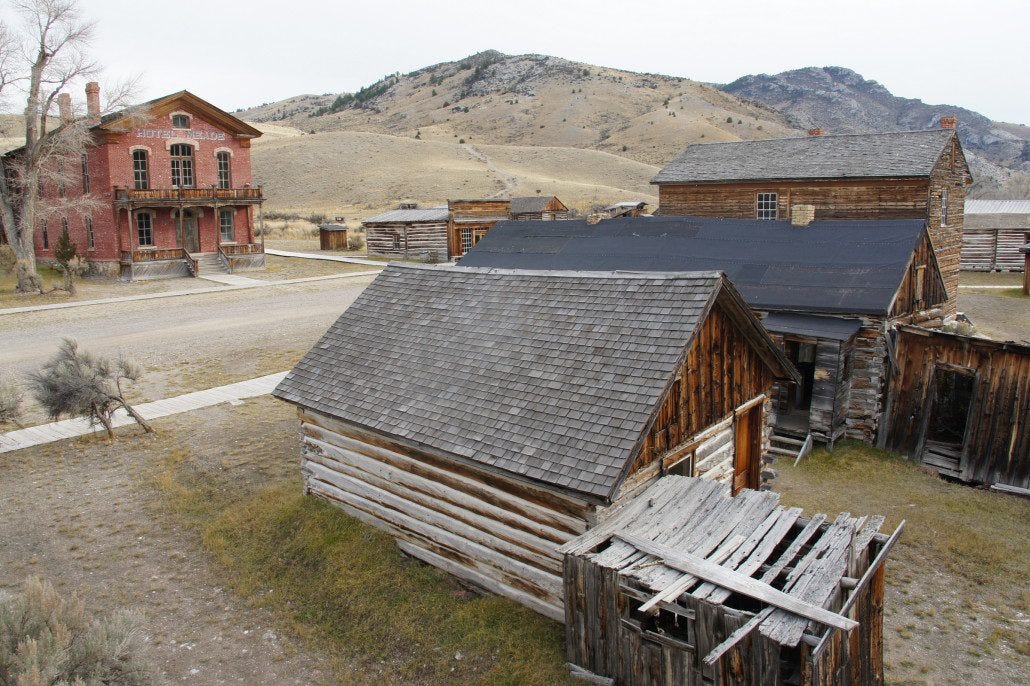
It’s 1863. The Civil War rages, herds of (dwindling) bison still roam the plains, and Conestoga wagons are in style. Henry Ford won’t drive the first Model T off the line for another 45 years.
In the hills of southwest Montana near the Continental Divide, the mining town of Bannack is thriving after gold nuggets were discovered the prior summer. The rush fuels such intense growth that men all over the played-out Idaho territory ditch those claims and convene in Bannack to test their luck anew. Rather than building shelter in the summer, they mine non-stop until the reality of cold weather dusts their dirty beards with a hard frost and they hack together rough cabins.
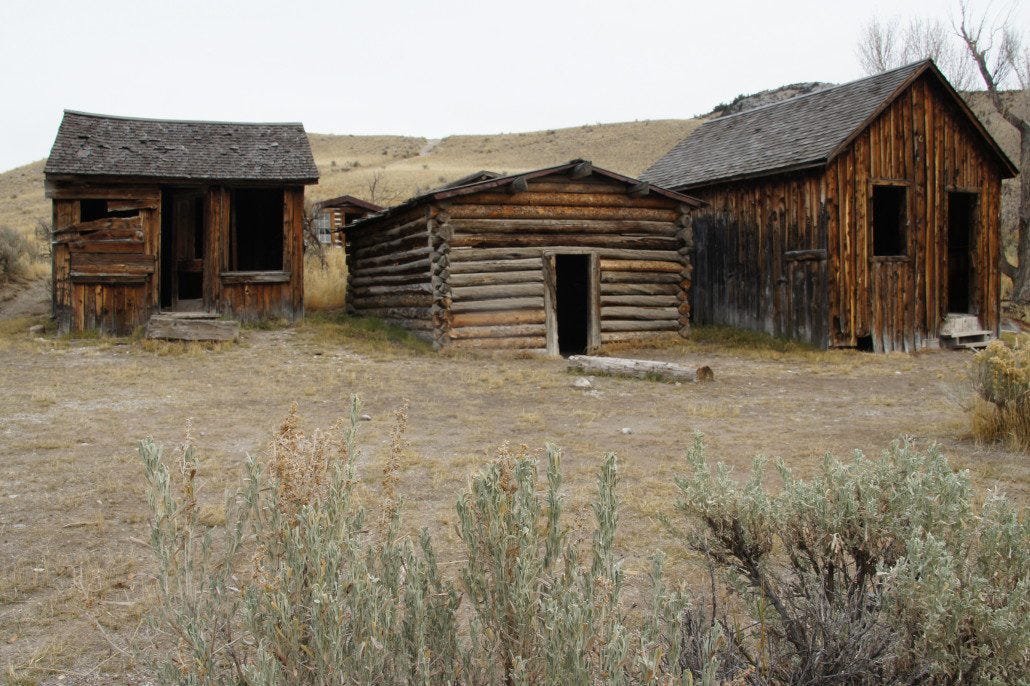
The collapsing remains of cabins in "Bachelor's Row."
Bannack is the kind of town where the sheriff, Henry Plummer, leads the local criminal group ironically called “The Innocents.” In just a year, they rob and kill 102 people before a local group of vigilantes uncover the conspiracy and hang the leaders. Even with the no-good sheriff gone, bullets still whiz about the mud streets. Luckily, many fatalities are avoided thanks to the poor aim of drunken shooters. Or perhaps it's thanks to the strychnine in the whiskey, an additive used to “add a little tang.”
Prosperity eludes most of the miners. Most spend it on booze and other entertainment as fast as they can make it, their money funneling into the pockets of local merchants. Women comprise less than 5% of Bannack’s population, so the Hurdy Gurdy girls - named after the hand-cranked music device - do well charging up to a dollar per dance to whirl and spin with the attention-starved miners.
Over the next century, the town’s fortune ebbs and flows as new mining technologies are developed. Most of the gold seekers leave, the population of 3,000 dwindling fast, but others stick around and mine until the early 1940s. Only the federal decree to cease all non-essential mining during WWII sounds the death knell for Bannack, and the last resident leaves soon after. The one-room schoolhouse, built in 1874, finally shuts down in 1951. The town is donated to the state soon after and becomes a park in the 1970s.

Years of boredom are carved into a desk in the school house.
****
Over 150 years after the first gold was discovered in Bannack, my dad and I wandered through the ghost town during a road trip through Montana. Colder fall weather had recently teased yellow colors from the trees, and the hot campfire the night before warmed our backs. I tried to imagine living in this hard-edged frontier town, and decided I am not nearly tough enough.

The streets are no longer muddy, and the boardwalk in front of the remaining 60 buildings makes the place feel almost civilized. Most establishments are still accessible to the public, so we spent the better part of a day exploring the quiet homes with the aid of an informative pamphlet with grammar so bad one of the original miners may have written it.
Enough chit chat: this awesome experience is best highlighted by a photo essay! If you’re ever in the SW corner of Montana, make sure to pencil in a stop at Bannack State Park. You won’t be disappointed.
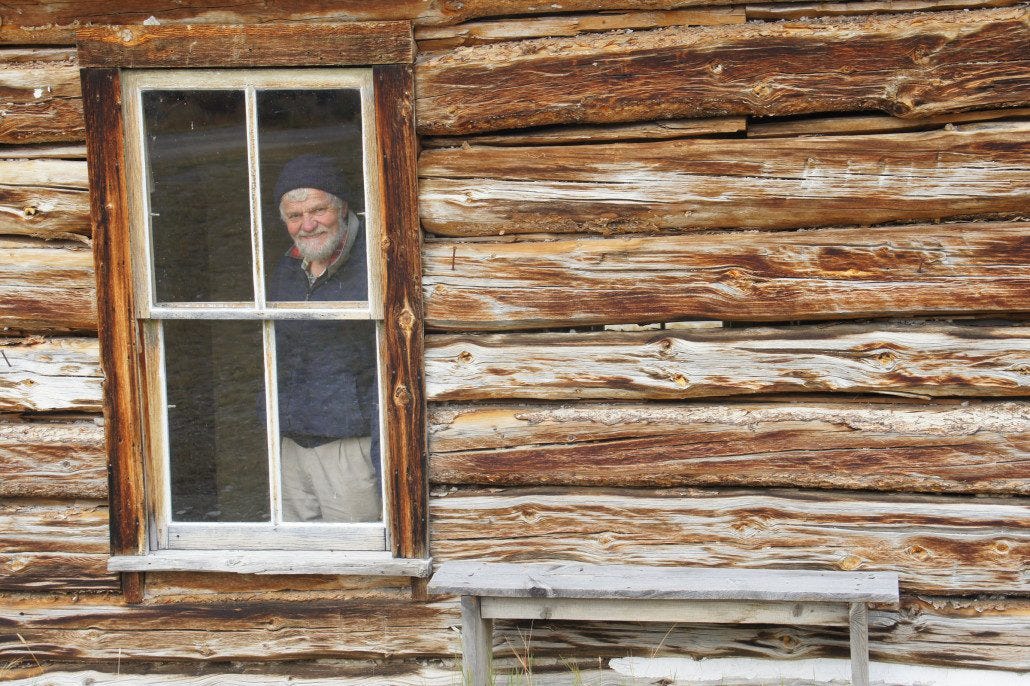
My dad exploring a cabin.
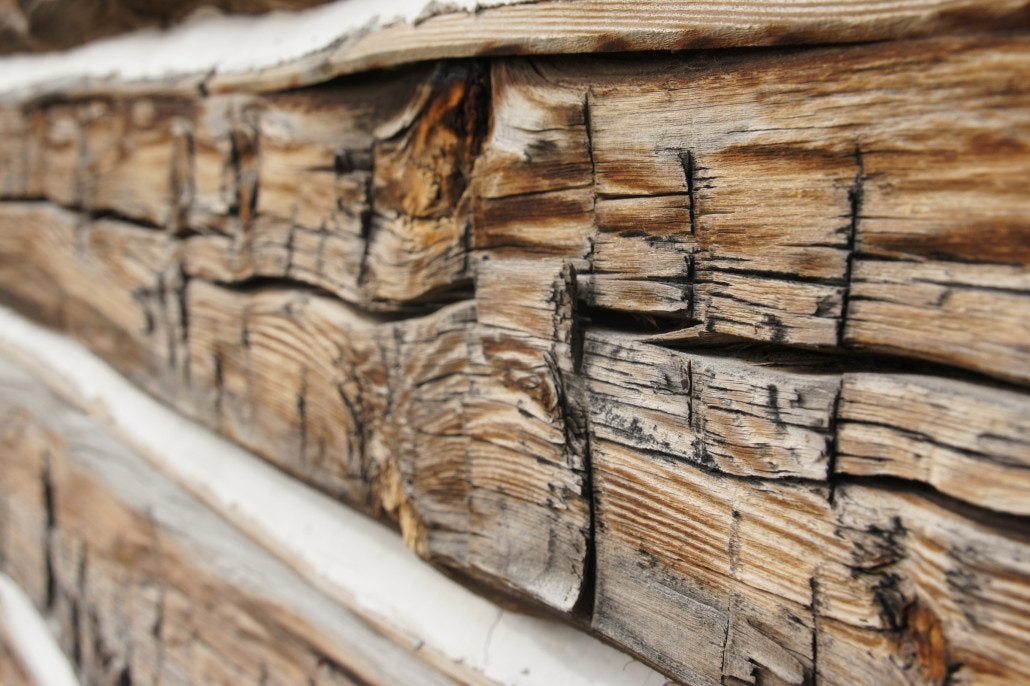
Slash marks from an adze on an old cabin in Bannack.

Old mining equipment in Bannack State Park.

The jail house with its spiffy sod roof. Henry Plummer, the corrupt sheriff, had it built, but never did much with it since he was hung so fast.
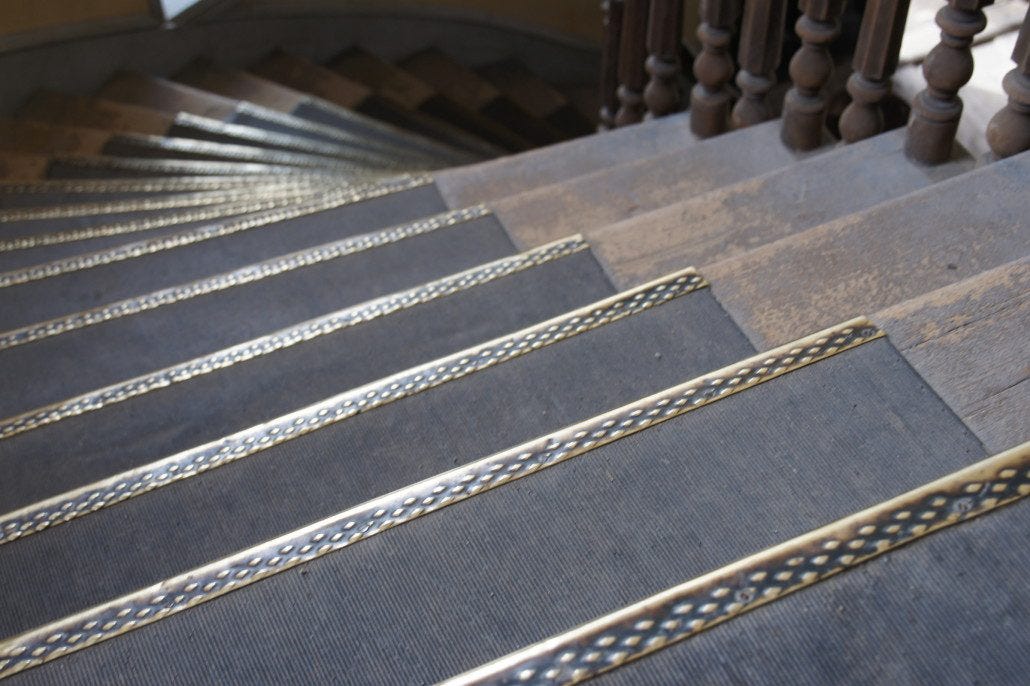
Worn edging on stairs in Bannack's Hotel Meade.

A view across town.
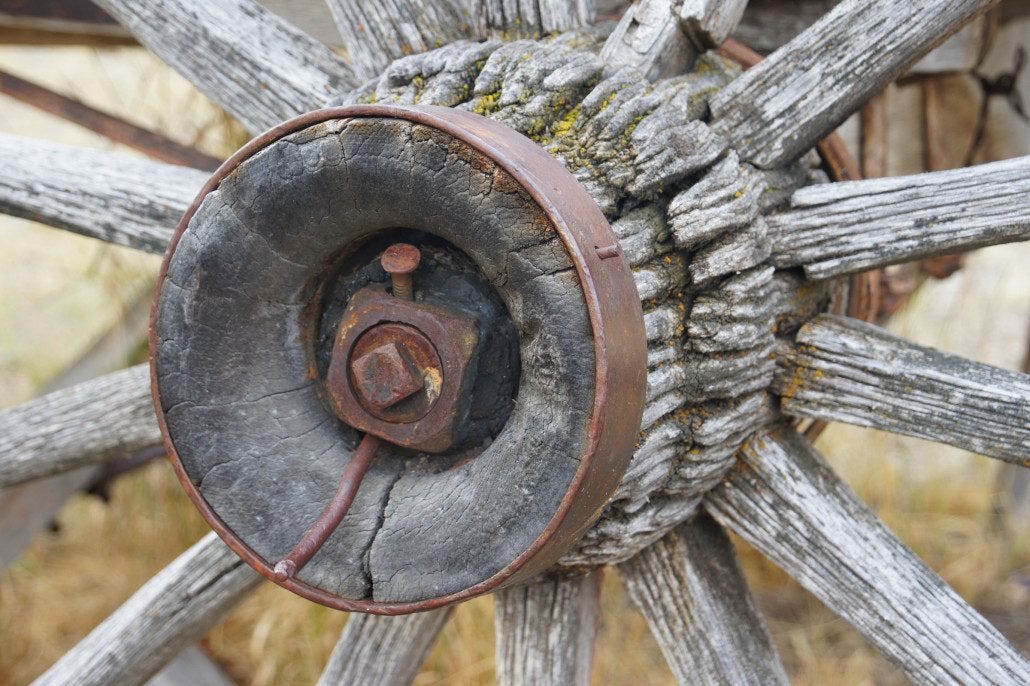
An old wagon wheel.

An old dugout cabin.
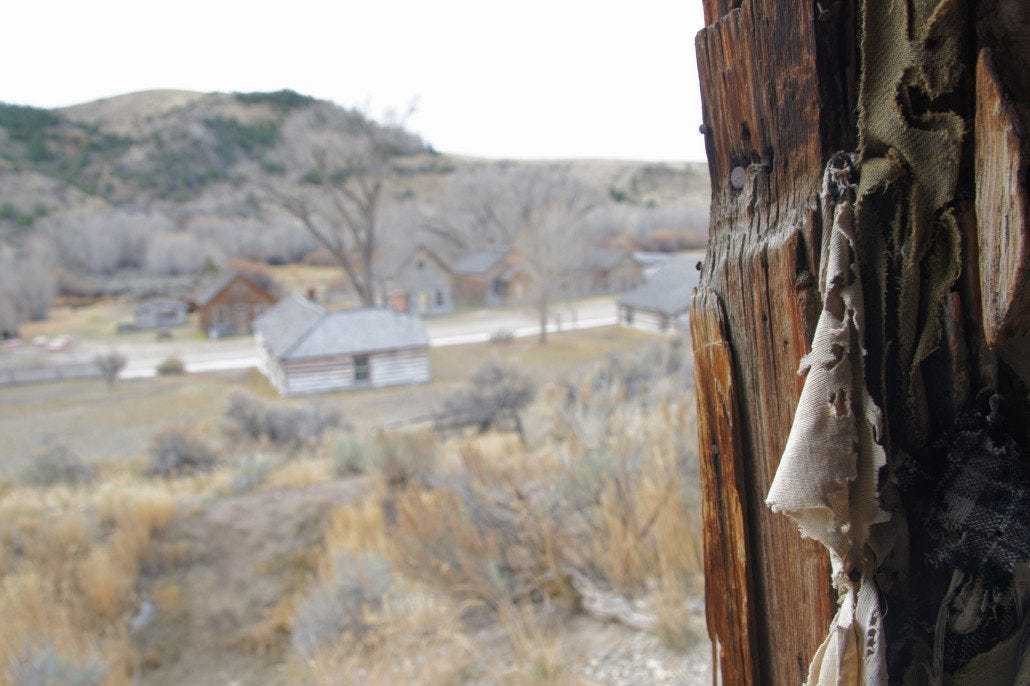
Bits of linen flap on a door frame. The fabric was layered around the door to keep out drafts.
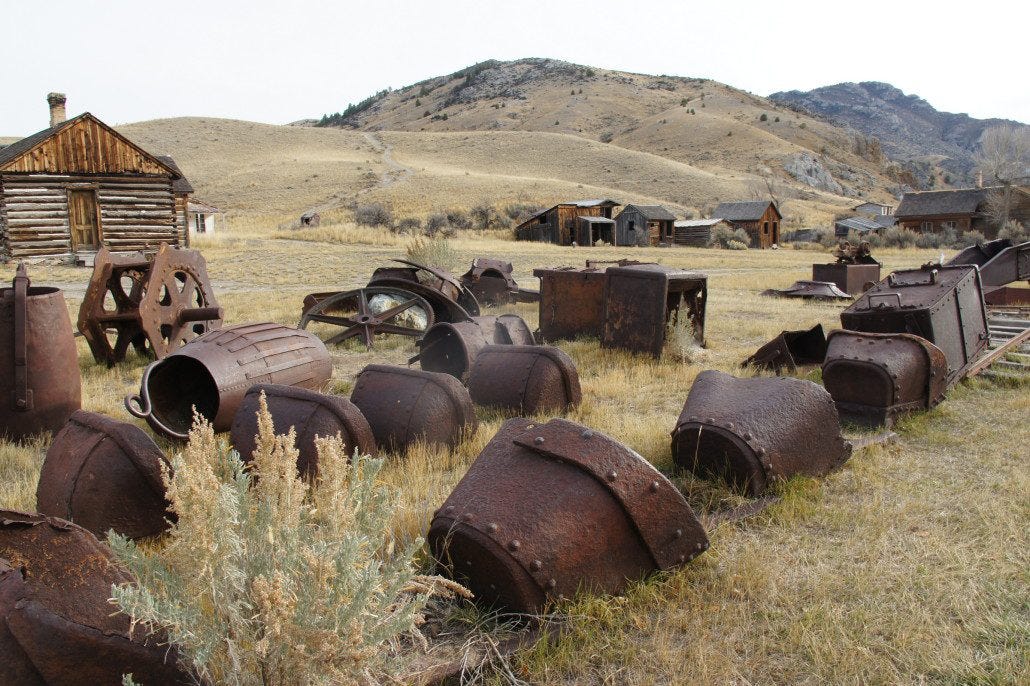
Old iron mining carts and other equipment rust in place.

An old cabin with Hotel Meade in the background.

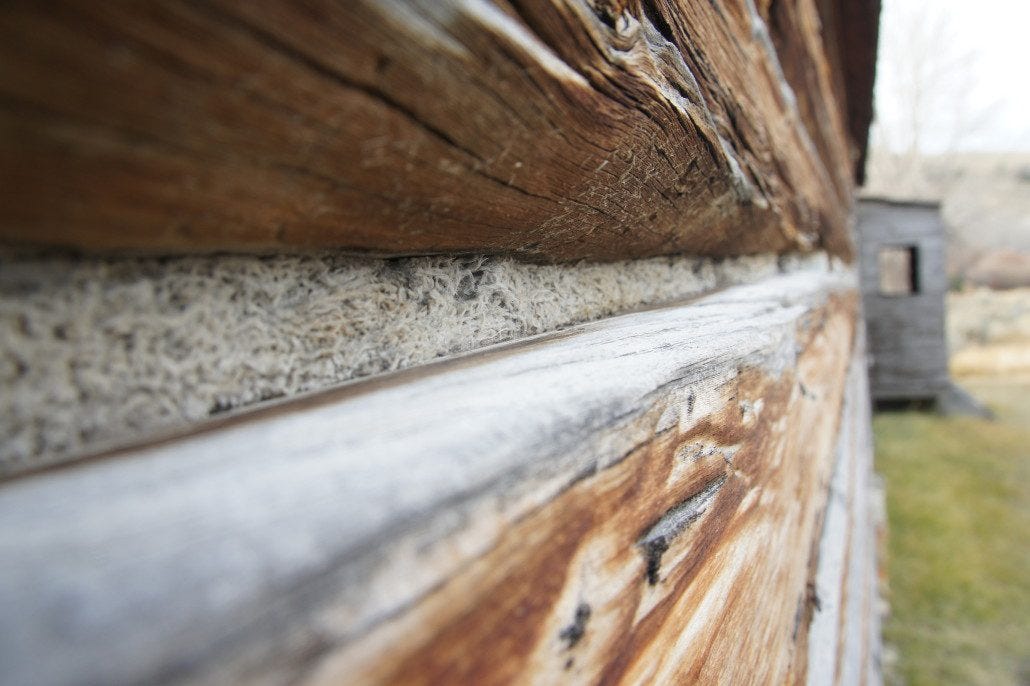
Chinking in the cracks of a cabin.
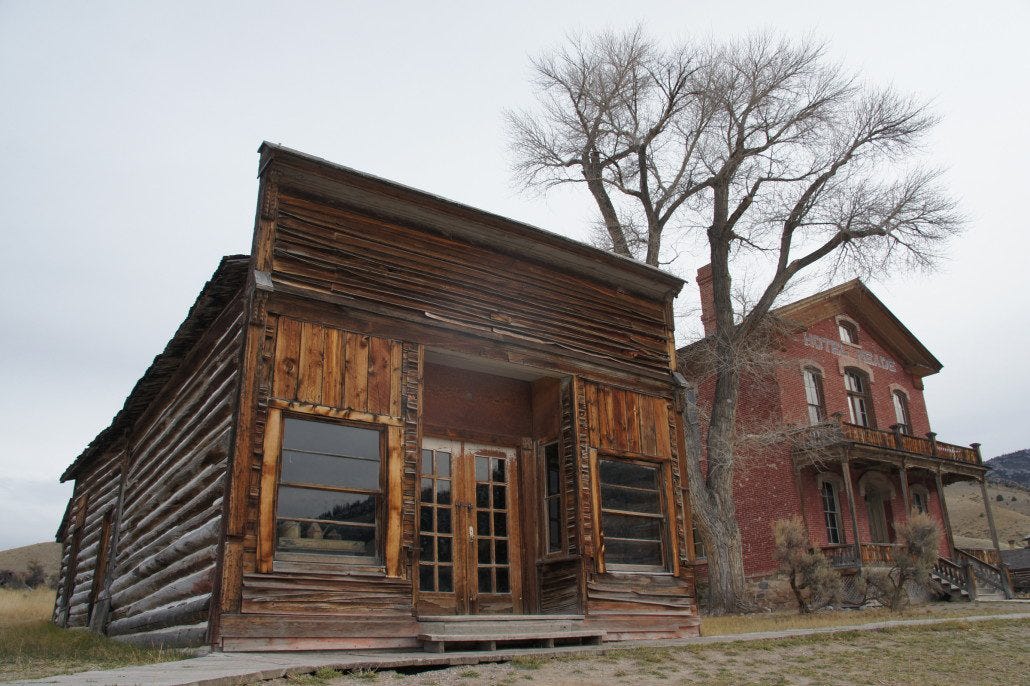
The most important (and first) building in town: the assay house. This is where the gold was assessed for weight and quality. Compared to 80% purity for most gold, Bannack's was 99.5%, as good as it gets.

When linen tacked to your cabin wall serves as wallpaper, you know things are rustic.

My dad sits in the old schoolhouse.

How many times has this house's screen door been wiggled open by prying fingers? Many more shall pass through here...

